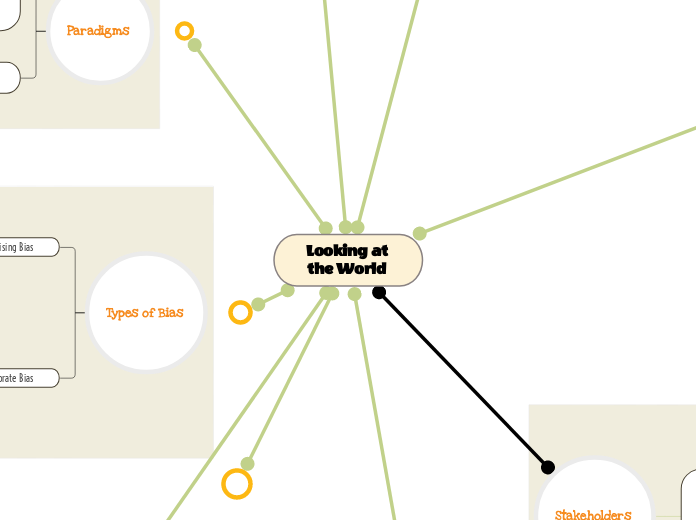Looking at the World
Problem vs Issue
Problem: Is usually smaller than an issue
Issue: An issue is a complex “problem” also requiring a solution.
SPEEC
Political factors: These are factors that relate to the government and its policies, laws, and regulations.
Economic factors: These are factors that relate to the production, distribution, and consumption of goods and services
Environmental factors: These are factors that relate to the physical environment, including natural resources, climate change, and pollution
Cultural factors: These are factors that relate to the beliefs, values, and customs of a society.
Stakeholders
Stakeholders are individuals, groups, or organizations that have a vested interest or concern in a particular project, business, or issue.
examples: Business: In a business context, stakeholders may include customers, employees, shareholders, suppliers, regulators, and local communities
Social: In a social context, stakeholders may include community members, social service organizations, government agencies, and advocacy groups.
Globalization
Globalization is the process of increasing interconnectedness and interdependence among individuals, businesses, and countries around the world.
Quality of Life Factors
Education
Employment
Family
Freedom
Health
Natural Environment
Respect and Equity
Safety and Security
Values and Beliefs
Wealth
Perspective
Factors influencing perspective
Socio Economic
Life experiences
Paradigms
A paradigm is a set of beliefs, concepts, values, and practices that shape the way we understand and interpret a particular phenomenon or subject matter.
Words that relate to Paradigm:
Assumptions
Concept
Methodoligies
Theories
Types of Bias
Advertising Bias
Advertising refers to the practice of creating and distributing promotional content or messages about a product, service, or brand in order to influence consumer behavior and drive sales.
Corporate Bias
Corporate bias refers to the tendency of companies and organizations to prioritize their own interests and perspectives over those of other stakeholders, such as employees, consumers, and the wider community.
Sustainability
Sustainability refers to the ability to meet the needs of the present generation without compromising the ability of future generations to meet their own needs.
